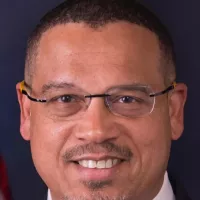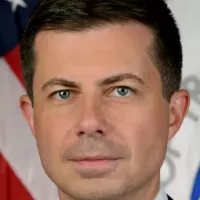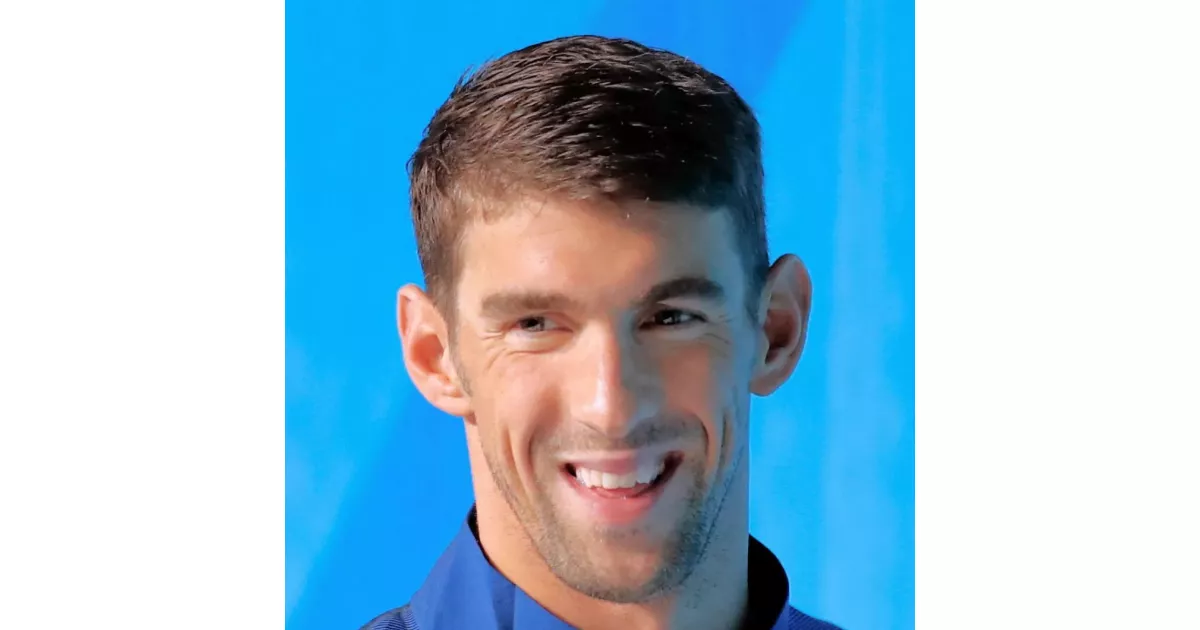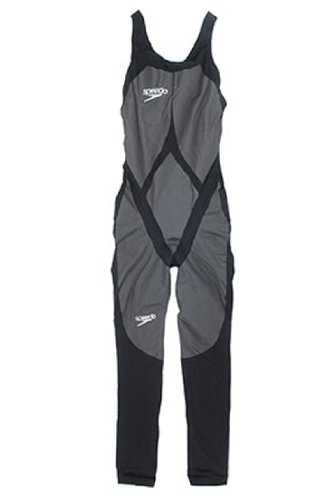A success timeline featuring the most significant achievements of Michael Phelps.
Michael Phelps is the most decorated Olympian of all time, holding a record of 28 medals. He holds all-time records for Olympic gold medals (23), Olympic gold medals in individual events (13), and Olympic medals in individual events (16). At the 2004 Athens Olympics, he won six gold and two bronze medals. He broke Mark Spitz's record by winning eight gold medals at the 2008 Beijing Games. In 2012 London Olympics, Phelps won four gold and two silver medals and continued his success in the 2016 Rio de Janeiro Olympics with five gold medals and one silver, marking his fourth consecutive Olympics as the most successful athlete.
1920: Duke Kahanamoku's Olympic Record
In 1920, Duke Kahanamoku set a record as the oldest male champion in Olympic swimming, a record that Michael Phelps would later break.
1932: Ralph Flanagan's Olympic Appearance
In 1932, Ralph Flanagan was the youngest male to make a U.S. Olympic swim team, before Michael Phelps in 2000.
1972: Mark Spitz's Performance at 1972 Summer Olympics
At the 1972 Summer Olympics, Mark Spitz set the record for the best performance at a single Olympics, winning seven gold medals.
1972: Mark Spitz's Record
In 1972, Mark Spitz set a record by achieving seven first-place finishes at a single Olympic Games.
1980: Eric Heiden's Olympic Record
In the 1980 Winter Olympics, Eric Heiden set a record for individual gold medals at a single Games.
1992: Vitaly Scherbo's Olympic Record
In the 1992 Summer Games, Vitaly Scherbo equaled the record for individual gold medals at a single Games.
2001: Previous World Record
In 2001, Phelps previously held the world record for the 200-meter butterfly with a time of 1:54.58.
2001: World Record in 200-meter Butterfly
On March 30, 2001, at the World Championship Trials, Michael Phelps broke the world record in the 200-meter butterfly, becoming the youngest male ever to set a world record in swimming at 15 years and 9 months. At the World Championships in Fukuoka, Japan, Phelps broke his own world record in the 200-meter butterfly while en route to become a world champion for the first time.
2002: 2002 Pan Pacific Swimming Championships
At the 2002 Pan Pacific Swimming Championships in Yokohama, Japan, Michael Phelps won three gold medals and two silver medals. Phelps won gold in the 400-meter individual medley, the 200-meter individual medley, and silver in the 200-meter butterfly and the 4x200-meter freestyle relay. He also helped the U.S. 4x100-meter medley relay team to a world record.
2002: Nationals and World Record
In 2002 at Nationals, Michael Phelps set an American record in the 200-meter individual medley and came close to the world record in the 200-meter butterfly. He also bettered the world record in the 400-meter individual medley with a time of 4:11.09 at the selection meet for the Pan Pacific Swimming Championships.
2002: Winning streak in 200-meter butterfly
Since 2002, Michael Phelps had not lost a 200-meter butterfly final, highlighting his dominance in the event.
2003: 2003 World Aquatics Championships
At the 2003 World Aquatics Championships, Michael Phelps won four gold medals and two silver medals and broke five world records. On July 22, 2003, he broke the world record in the semi-finals for the 200-meter butterfly with a time of 1:53.93.
2003: 200-meter individual medley world record
In 2003, Michael Phelps set a world record time of 1:55.94 in 200-meter individual medley.
2003: 2003 Nationals and Duel in the Pool
In 2003, at Nationals, Michael Phelps won the 200-meter freestyle, 200-meter backstroke, and the 100-meter butterfly, becoming the first American swimmer to win three different races in three different strokes at a national championship. At the Duel in the Pool, he broke the world record in the 400-meter individual medley with a time of 4:10.73. At a meet in Santa Clara County, California, Phelps broke the world record in the 200-meter individual medley with a time of 1:57.94.
2004: Athens Olympics
After the 2004 Athens Olympics, Michael Phelps would later become the first swimmer, male or female, to win three Olympic butterfly titles.
2004: 2004 Summer Olympics in Athens
At the 2004 Summer Olympics in Athens, Michael Phelps tied the record of eight medals of any color at a single Games, winning six gold and two bronze medals.
2004: 2004 U.S. Olympic Team Trials
At the 2004 U.S. Olympic Team Trials, Michael Phelps competed in six events and qualified in six individual events for the U.S. Olympic team. He won the 400-meter individual medley with a world record time of 4:08.41, the 200-meter freestyle, and the 200-meter butterfly. He finished second in the 200-meter backstroke and the 100-meter butterfly. He won the 200-meter individual medley title.
2004: Close Victories in the 100m Butterfly
In 2004, Michael Phelps secured one of his close victories in the 100m butterfly at the Olympics, winning by 0.04 seconds.
2004: Won gold medal in 200m Butterfly
In 2004, Michael Phelps won his first gold medal in the 200-meter butterfly at the Olympics.
2004: Previous World Record
Prior to August 17, 2008, the United States held the world record from the 2004 Olympic Games in Athens.
2005: 2005 World Championship Trials
At the 2005 World Championship Trials, Michael Phelps decided to drop his specialty events, the 400-meter individual medley and the 200-meter butterfly, and experiment with the 400-meter freestyle and the 100-meter freestyle. Phelps won the 400-meter freestyle, the 200-meter freestyle, the 100-meter butterfly, the 100-meter freestyle, and the 200-meter individual medley at the Trials.
2005: Ian Crocker's record
In 2005, Ian Crocker set a world-record time of 50.40 seconds.
2005: 2005 World Aquatics Championships
In 2005, at the World Aquatics Championships, Michael Phelps won a total of six medals, including five golds and one silver. He won his first gold in the 4x100-meter freestyle relay. He also finished 18th overall in the 400-meter freestyle.
2006: Pan Pacific Championships Backstroke competition
In 2006, Michael Phelps competed in the backstroke at the Pan Pacific Championships.
2006: 2006 National Championships
In 2006, at the National Championships, Michael Phelps won three events: the 200-meter butterfly, the 100-meter butterfly, and the 200-meter individual medley.
2006: 2006 Pan Pacific Swimming Championships
In 2006, at the Pan Pacific Swimming Championships in Victoria, British Columbia, Michael Phelps won five gold medals and one silver. He set a world record in the 200-meter butterfly. He also won gold in the 400-meter individual medley, the 4x200-meter freestyle relay, the 4x100-meter freestyle relay and the 200-meter individual medley. He won silver in the 200-meter backstroke.
August 1, 2007: US Nationals in Indianapolis
On August 1, 2007, at the US Nationals in Indianapolis, Michael Phelps swam a 1:54.65 in the 200-meter backstroke, which was the third-fastest time ever in the event.
2007: 100-meter butterfly title
In 2007, Michael Phelps won the 100-meter butterfly title at the World Aquatics Championships, contributing to his winning streak.
2007: 2007 World Aquatics Championships
In 2007, at the World Aquatics Championships, Michael Phelps won seven gold medals, tying Mark Spitz's record, and broke five world records. He won gold in the 4x100-meter freestyle, 200-meter freestyle, 200-meter butterfly, 200-meter individual medley, 4x200-meter freestyle relay, 100-meter butterfly, and 400-meter individual medley.
August 17, 2008: Eighth Gold Medal at the 2008 Olympics
On August 17, 2008, Michael Phelps won his eighth gold medal in the 4x100-meter medley relay, breaking Mark Spitz's record from 1972. The team set a new world record.
2008: 2008 Beijing Games
At the 2008 Beijing Games, Michael Phelps won eight gold medals, breaking Mark Spitz's 1972 record of seven first-place finishes at a single Olympic Games.
2008: Eighth Olympic Gold Medal
During the 2008 Summer Olympics in Beijing, Ian Thorpe initially expressed doubt that Michael Phelps would win eight gold medals. Phelps used those remarks as motivation. Thorpe was present for the 4×100-meter medley relay, where Phelps secured his eighth Olympic gold medal, after which Thorpe congratulated Phelps.
2008: Close Victories in the 100m Butterfly
In 2008, Michael Phelps secured another close victory in the 100m butterfly at the Olympics, winning by 0.01 seconds.
2008: 4x100-meter freestyle relay victory at the 2008 Olympics
In 2008, Michael Phelps swam the first leg of the 4x100-meter freestyle relay and won his second gold medal of the Olympics. The team also set a world record.
2008: Defending Individual Title
In 2008, Michael Phelps won an individual title and he was one of the swimmers who successfully defended that title from the 2008 Games at the 2012 Olympics.
2008: Won gold medal in 200m Butterfly
In 2008, Michael Phelps won another gold medal in the 200-meter butterfly at the Olympics, continuing his dominance in the event.
2008: 2008 U.S. Olympic Team Trials
In 2008, at the U.S. Olympic Team Trials, Michael Phelps competed in six individual events. He broke his own world record in the 400-meter individual medley. He also won the 200-meter freestyle, 200-meter butterfly, 200-meter individual medley, and 100-meter butterfly.
April 9, 2009: Honored by Maryland Legislature
On April 9, 2009, Michael Phelps was invited to appear before the Maryland House of Delegates and the Maryland Senate to be honored for his Olympic accomplishments.
2009: 100-meter butterfly title
In 2009, Michael Phelps won his third consecutive title in the 100-meter butterfly at the World Aquatics Championships.
2009: 2009 National Championships
In 2009, at the National Championships, Michael Phelps swam in three individual events: the 200-meter freestyle, the 200-meter butterfly, and the 100-meter butterfly. He won all three, setting a world record in the 100-meter butterfly.
2009: 2009 World Aquatics Championships
In 2009, at the World Aquatics Championships, Michael Phelps won 6 medals. He led off the 4x100-meter freestyle relay, securing gold for the American team. In the 200-meter freestyle, he lost to Paul Biedermann and took silver, but then rebounded to win gold in the 200-meter butterfly, breaking his own world record. He also led off the 4x200-meter freestyle relay, contributing to another gold and world record. In the 100-meter butterfly, Phelps won gold, completing it in under 50 seconds, and concluded with a fifth gold in the 4x100-meter medley relay, setting another world record.
2009: Rome Title
Since the Rome 2009 titles, the national team had not won the men's 4 × 100 m freestyle relay until Phelps' return.
2010: 2010 National Championships
In 2010, at the National Championships, Michael Phelps competed in five individual events. He won the 200-meter freestyle and the 200-meter butterfly, though he was unhappy with the latter performance. Phelps also won his 50th national title in the 100-meter butterfly. He finished second to Ryan Lochte in the 200-meter individual medley and finished fourth in the 200-meter backstroke.
2010: 2010 Pan Pacific Swimming Championships
In 2010, at the Pan Pacific Swimming Championships, Phelps opted out of the 200-meter freestyle final to focus on the 200-meter butterfly, which he won. He also swam in the 4x200-meter freestyle relay, finishing first. Phelps competed in the 100-meter butterfly, finishing first and setting a championship record. He also participated in the 4x100-meter freestyle relay and the 4x100-meter medley relay, securing first place in both.
2011: 2011 World Aquatics Championships
In 2011, at the World Aquatics Championships in Shanghai, Michael Phelps won bronze in the 4x100-meter freestyle relay. He also won silver in the 200-meter freestyle and secured his first gold medal in the 200-meter butterfly, making him the first swimmer to win five gold medals in one discipline at the World Aquatics Championships.
July 28, 2012: 400-meter Individual Medley at the 2012 Summer Olympics
On July 28, 2012, at the London Summer Olympics, Michael Phelps placed eighth in the prelims for the 400-meter individual medley. He won his heat but with a time well off his world record. In the finals, Phelps finished fourth, marking the first time he failed to medal in an Olympic event since 2000.
July 31, 2012: Silver and Gold Medals at the 2012 Summer Olympics
On July 31, 2012, Michael Phelps won a silver medal in the 200-meter butterfly at the Summer Olympics, finishing behind Chad le Clos. Later that day, he won a gold medal in the 4x200-meter freestyle relay, surpassing Larisa Latynina to become the all-time record holder for most Olympic medals won.
August 2, 2012: 16th Olympic Gold Medal and Three-peat Victory
On August 2, 2012, Michael Phelps won his 16th Olympic gold medal by winning the 200-meter individual medley at the Summer Olympics, edging out Ryan Lochte. This victory also made him the first male swimmer to win the same event in three consecutive Olympics.
2012: 2012 Summer Olympics in London
At the 2012 Summer Olympics in London, Michael Phelps won four gold and two silver medals.
2012: World Record for Longest Televised Putt
In 2012, at the Alfred Dunhill Links Championship, Michael Phelps set the world record for the longest televised putt in history, sinking a putt from 159 feet away while paired with golfer Paul Casey.
2012: Final Olympic Event and Recognition
In 2012, at the Summer Olympics, Michael Phelps's final event was the 4x100-meter medley relay, where he won his 18th career gold medal and his 22nd overall. He concluded the 2012 Olympics as the most successful swimmer for the third consecutive Olympics. FINA honored him with an award commemorating his status as the most decorated Olympian ever.
May 2014: Victory at Arena Grand Prix
In May 2014, Michael Phelps won the 100-meter butterfly event at the Arena Grand Prix in Charlotte, North Carolina, marking his return to competitive success.
December 2015: Winter Nationals Titles
In December 2015, Michael Phelps won titles in the 100-meter butterfly, 200-meter butterfly, and the 200-meter individual medley at the Winter Nationals in Federal Way, bringing his career total to 62 national titles.
2015: US National Championships Success
In 2015, after being dropped from the World Aquatics Championships team, Michael Phelps competed in the US National Championships in San Antonio. He won gold medals in the 100-meter butterfly, 200-meter butterfly, and 200-meter individual medley, achieving the fastest times in the world for that year in each event.
2016: 2016 Summer Olympics in Rio de Janeiro
At the 2016 Summer Olympics in Rio de Janeiro, Michael Phelps won five gold medals and one silver, making him the most successful athlete of the Games for the fourth Olympics in a row.
2016: Qualified for fifth Olympics
In 2016, at the US trials in Omaha for the Summer Olympics, Michael Phelps won the 200 m butterfly, the 200 m individual medley, and the 100 m butterfly events, making him the first American male swimmer to qualify for a fifth Olympics. He also secured a spot on the Men's 4 × 100 metre freestyle relay.
2016: Won 19th Olympic Gold Medal
On August 7, 2016, Michael Phelps won his first gold medal of the 2016 Games and his 19th Olympic gold medal overall in the 4 × 100 m freestyle relay. His coach, Bob Bowman, described Phelps's turn as "maybe the best turn that's ever been done".
August 21, 2018: Age Group Records Held
As of August 21, 2018, Michael Phelps still held 11 age group records, eight in long course and three in short course.
2020: Federica Pellegrini Becomes Second Swimmer to Make Five Finals in the Same Event
At the 2020 Olympics, Federica Pellegrini became the second swimmer in history to make five finals in the same event, following Michael Phelps who achieved this feat earlier.
July 23, 2023: Lost Individual World Record
As of July 23, 2023, Michael Phelps' last standing individual world record in the 400 m individual medley was broken.
Mentioned in this timeline

Instagram is a photo and video-sharing social networking service owned...
Xbox is a video gaming brand owned by Microsoft Gaming...
California is a U S state on the Pacific Coast...
Sports Illustrated SI is an American sports magazine launched in...
Japan is an East Asian island country situated in the...
Arizona is a landlocked state in the Southwestern U S...
Trending

Padma Lakshmi is a multifaceted American personality known for her work as a television host model author businesswoman and activist...

8 months ago Drew Barrymore spotlights daughters and launches '70s-inspired furniture collection at Walmart.
Jaylon La Rone Tyson is an American professional basketball player currently with the Cleveland Cavaliers of the NBA drafted as...

Keith Maurice Ellison is a prominent American politician and lawyer affiliated with the Democratic Farmer Labor Party He currently holds...

10 months ago Whitney Cummings jokes with Kelly Clarkson about women leaving their husbands after Kellyoke.

6 months ago Buttigieg Warns Democrats: No Return to Status Quo Post-Trump Presidency in 2028.
Popular

Thomas Douglas Homan is an American law enforcement officer who...

William Franklin Graham III commonly known as Franklin Graham is...

Jupiter is the fifth and largest planet from the Sun...

XXXTentacion born Jahseh Dwayne Ricardo Onfroy was a controversial yet...

Kristi Noem is an American politician who has served as...

Instagram is a photo and video-sharing social networking service owned...

